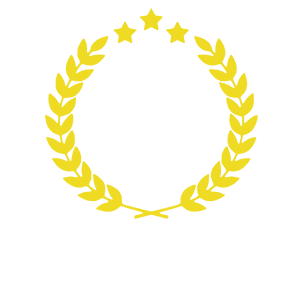
In the dynamic world of real estate, a Real Estate Certification Portfolio can be the key to unlocking a successful career. Whether you’re a seasoned agent or just starting in the industry, having the right credentials and certifications is essential for building trust with clients, enhancing your skill set, and advancing in your career. This post explores the importance of a certification portfolio and how it can help you stand out in the competitive real estate market.
What is a Real Estate Certification Portfolio?
A Real Estate Certification Portfolio is a comprehensive collection of all the certifications, licenses, and educational achievements that a real estate professional has earned over their career. It serves as a tangible proof of your qualifications, experience, and expertise, showcasing your readiness to meet the diverse challenges of the real estate market.
A well-organized portfolio is not just a list of certificates; it’s a strategic tool that demonstrates your commitment to professional growth, your ability to adapt to market changes, and your dedication to providing high-quality service.
Key Components of a Real Estate Certification Portfolio
- Real Estate Licenses
- At the core of any portfolio are the official licenses required to operate as a real estate professional in specific regions. These licenses are often divided into various classes depending on the role, such as real estate agent, assistant agent, or property manager.
- Completed Training and Courses
- A successful portfolio highlights any specialized training or real estate courses completed. This may include real estate practice certifications, property management courses, or specific industry qualifications, such as the NSW CPP41419 Certificate IV Real Estate Practice.
- Continuing Professional Development (CPD)
- Real estate is an industry that evolves constantly, and continuing education is vital. Many certification programs require ongoing CPD to maintain your qualifications. A CPD section in your portfolio shows that you’re committed to staying up-to-date with the latest trends, laws, and technologies in the real estate world.
- Industry Recognition and Achievements
- If you’ve received any industry awards, recognition, or accolades, these should be prominently displayed in your portfolio. This could include awards for top sales, excellence in client service, or recognition by real estate bodies.
- Client Testimonials and References
- A certification portfolio isn’t just about the credentials; it’s also about the relationships you’ve built. Including client testimonials, references, and case studies of successful transactions can showcase your real-world expertise and the value you bring to clients.
Why a Real Estate Certification Portfolio is Important
- Builds Credibility and Trust
- In real estate, trust is everything. Having a well-documented certification portfolio shows clients that you are qualified and capable of handling their needs. It builds credibility and reassures them that they are working with a professional.
- Helps with Career Advancement
- As you grow in your career, showcasing your certifications and continued professional development helps you stand out to potential employers, clients, and business partners. A portfolio can also be crucial when applying for advanced roles or seeking promotions within real estate firms.
- Demonstrates Commitment to Professional Development
- The real estate market is ever-changing. A certification portfolio reflects your commitment to staying ahead of industry trends, acquiring new skills, and continuously improving your services to meet evolving client needs.
- Boosts Marketability
- When seeking to grow your business or personal brand, having a robust certification portfolio can be a great marketing tool. It can differentiate you from other real estate professionals and can even be the deciding factor for potential clients when choosing an agent or property manager.

How to Build Your Real Estate Certification Portfolio
- Enroll in Relevant Courses
- Start by pursuing recognized real estate courses and certifications. Whether you’re aiming for a NSW License Class 2, a Property Management Diploma, or an ACT Assistant Agent Course, it’s important to choose the qualifications that align with your career goals.
- Track and Document Your Achievements
- Keep a record of all certificates, diplomas, and accolades. Make sure to update your portfolio regularly as you complete new training, earn certifications, or achieve notable milestones.
- Organize Your Portfolio Professionally
- A neat, organized portfolio that clearly displays your certifications is crucial. Use sections or tabs to separate licenses, qualifications, client references, and other important documents. Make sure to include dates and details about each credential.
- Showcase Your Practical Experience
- While certifications are essential, clients and employers also want to see your hands-on experience. Include examples of transactions you’ve successfully completed, property management challenges you’ve overcome, or projects where you’ve added value.
Conclusion
A Real Estate Certification Portfolio is a powerful tool for any real estate professional. It not only highlights your qualifications and expertise but also enhances your professional reputation and credibility. By maintaining an up-to-date portfolio, you’ll have the confidence to market yourself effectively, stand out to potential clients, and navigate your career path with success.



